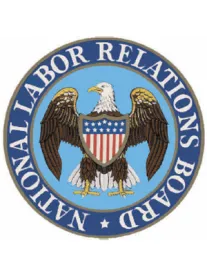-
On February 4, House and Senate Democrats introduced the Protecting the Right to Organize (PRO) Act. The sponsors described the bill as comprehensive labor legislation aimed at bolstering workers’ collective bargaining rights. The legislation is an updated version of a 2020 bill that passed the House but never made it out of committee in the Senate. If enacted, the PRO Act would result in sweeping changes to the National Labor Relations Act (NLRA), including drastically expanded damages, fines, and civil penalties — in some cases, imposing personal liability on company officers and directors. Other pro-union and pro-employee changes under the PRO Act include: (1) allowing parties to negotiate collective bargaining agreement provisions requiring employees to pay union dues or face termination, even in right-to-work states; (2) prohibiting employers from permanently replacing strikers and locking out employees in certain strike situations; (3) expanding the definition of “joint employer” to find joint liability where an entity’s “control” over employees is indirect or reserved; and (4) narrowing the definition of a “supervisor” under the NLRA, making it more difficult for an employer to classify its front-line supervisors and management as exempt from unionization. (The bill passed in the House on March 9.)
-
National Labor Relations Board (NLRB) Chairman Lauren McFerran provided a roadmap for possible NLRB actions under the Biden administration. At a February 24 virtual discussion hosted by Cornell University, McFerran, the new NLRB chairman, offered an outline for expanding union rights under the NLRA. “If I had to characterize the impact of the Trump Board in a nutshell, it would be to say that this Board’s work has made the Act smaller, both in terms of its coverage and in terms of the scope of the activity that it protects,” McFerran said. She added, “That is exactly the wrong direction for the Act to be moving in these perilous economic times.” Among other changes, McFerran suggested she would seek to reverse the board’s 2019 SuperShuttle decision [367 NLRB No. 75 (2019)], which made it easier for companies to classify workers as independent contractors who are not protected by the NLRA. McFerran also expressed disagreement with, among other Trump-era cases, decisions permitting employers to ban company email use for union purposes, limiting displays of pro-union paraphernalia at work, and a 2020 decision finding the Board lacked jurisdiction over faculty at nonprofit religious colleges.
-
On February 17, President Joe Biden nominated Jennifer Abruzzo to be the NLRB’s General Counsel. Following his Inauguration Day termination of Peter Robb as NLRB General Counsel, President Biden nominated Jennifer Abruzzo, an attorney for the Communications Workers of America, to succeed Robb. Prior to working for the CWA, Abruzzo spent 23 years at the NLRB in various roles, including serving as Deputy General Counsel and Acting General Counsel, before former General Counsel Robb was confirmed. Abruzzo’s pick was applauded by labor leaders, but she may face a difficult confirmation battle in the Senate.
-
The NLRB amended its legal standard for analyzing whether nontenure-track faculty can unionize. Elon Univ., 370 NLRB No. 91 (Feb. 18, 2021). The NLRB adopted the test applied by the U.S. Court of Appeals for the D.C. Circuit in Univ. of Southern California v. NLRB, No. 17-1149 (D.C. Cir. 2019), and found the employer’s adjunct, visiting, and limited-term faculty were not “managers” and thus, were eligible to unionize. Under the NLRB’s prior test from its 2014 decision in Pacific Lutheran University, 361 NLRB 1404 (2014), a subgroup of nontenure-track faculty, such as adjunct professors, were considered managerial and exempt from NLRA coverage if they had a majority control of any university committees that make managerial decisions. In Elon Univ., the board instead adopted the D.C. Circuit’s framework that turns on whether the university’s faculty — operating as a body — exercises control over decision-making areas, and whether the subgroup at issue is included in such a managerial faculty body. Explaining the change in its standard, the NLRB in Elon stated that its prior rule conflicted with the U.S. Supreme Court’s 1980 ruling in NLRB v. Yeshiva University, 444 U.S. 672 (1980), which set out factors that determine managerial status of university professors. In a concurring opinion in Elon, Chairman Lauren McFerran explained that the new test will require the NLRB to review actual situations faced by contingent faculty members, writing that, “[u]nlike the faculty members in Yeshiva, who were found central to running the university, these academic workers are typically excluded from the kind of real power typically associated with managerial authority.”
-
Acting General Counsel Peter Ohr has asked the NLRB to send “Scabby the Rat” complaints back to regional offices for dismissal. The cases involve unions’ use of “Scabby,” a large inflatable rat, usually placed outside the worksite of employers involved in labor disputes with unions. Sometimes unions also use the rat to demonstrate against neutral “secondary” employers who are not directly involved in a labor dispute. In motions filed in two separate cases, acting General Counsel Ohr’s office asked the NLRB to send complaints involving Scabby that were issued against unions by Ohr’s predecessor, Peter Robb, back to the respective regional offices for dismissal. Regarding Robb’s decision to prosecute unions for deploying the rat in secondary demonstrations, Ohr wrote, “[s]uch pursuit is a waste of valuable Agency resources and not in the public interest.” The consequential move by Ohr is another example of the policy shift happening in the General Counsel’s office. The NLRB previously solicited briefs on whether it should restrict the use of “Scabby” in a case in which an administrative law judge ruled in July 2020 that the union did not unlawfully coerce workers when it displayed a 12-foot inflatable rat on public property. Robb’s campaign against Scabby may have been at odds with rulings from at least two circuit courts, which ruled that the use of inflatable rats at labor protests is constitutionally protected free speech.
Christopher M. Repole contributed to this article.









 />i
/>i

